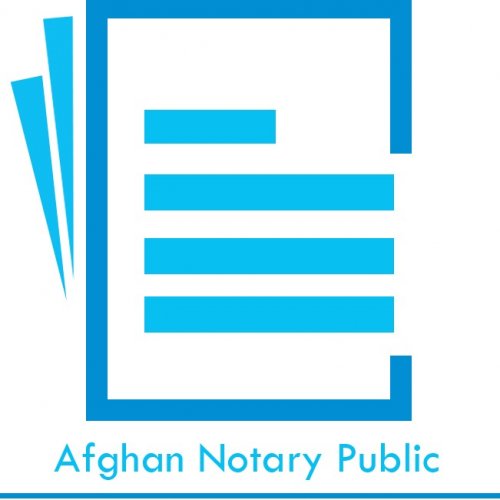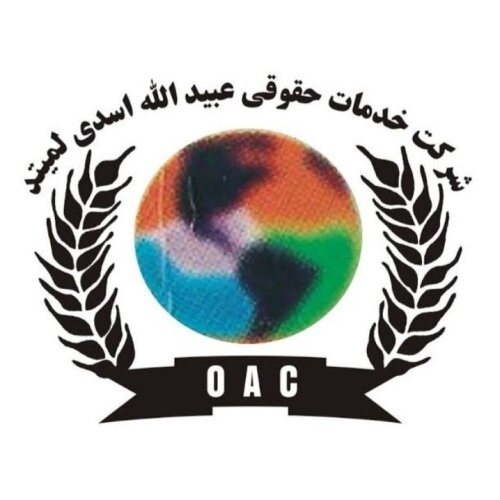Best Corporate Governance Lawyers in Afghanistan
Share your needs with us, get contacted by law firms.
Free. Takes 2 min.
Or refine your search by selecting a city:
List of the best lawyers in Afghanistan
About Corporate Governance Law in Afghanistan
Corporate governance refers to the systems, rules, and processes by which businesses are directed, managed, and controlled. In Afghanistan, corporate governance structures and standards are still evolving. The country’s existing legal frameworks aim to ensure transparency, accountability, and integrity in the operation of corporations. While Afghanistan’s corporate environment faces unique challenges due to local regulatory, economic, and cultural factors, there are laws and regulations that guide the management of company affairs, the responsibilities of directors, and the rights of shareholders.
Why You May Need a Lawyer
Legal assistance is often critical when dealing with corporate governance matters in Afghanistan. A lawyer can help individuals and businesses in situations such as:
- Setting up or restructuring a company in compliance with Afghan law
- Interpreting company bylaws and shareholder agreements
- Resolving disputes among shareholders or between directors and shareholders
- Ensuring compliance with reporting and transparency obligations
- Advising on director duties, fiduciary responsibilities, and risk management
- Investigating suspected fraud or breaches of duty within the company
- Handling mergers, acquisitions, or dissolutions
- Protecting the interests of minority shareholders
- Navigating regulatory requirements for listed companies
- Managing relations with government bodies and regulators
Complexities in Afghan law, language barriers, and limited precedent for certain business practices often make professional legal guidance essential to protect your interests and ensure lawful corporate operations.
Local Laws Overview
The core legal framework for corporate governance in Afghanistan is established through several laws and regulations:
- Company Law of Afghanistan: This law sets out the rules for company formation, management structures, director and shareholder rights, and requirements for maintaining corporate records.
- Commercial Code: Provisions relating to partnerships, joint-stock companies, and limited liability companies guide governance structures, responsibilities, and operations.
- Afghanistan Stock Exchange Regulations: If a company is listed or plans to be listed, regulatory compliance and corporate disclosure requirements become especially significant.
- Anti-Corruption Legislation: There are local and international standards against bribery, corruption, and money laundering that impact board oversight and compliance policies.
Key local law aspects relevant to corporate governance include:
- Director and officer duties to act in the best interests of the company
- Mandatory annual shareholder meetings and reporting requirements
- Clear delineation of rights between majority and minority shareholders
- Appointment, dismissal, and powers of directors and corporate officers
- Requirements for financial record keeping and external audits
- Procedures for resolving internal disputes and enforcing shareholder rights
While Afghanistan’s corporate laws provide the general framework, enforcement mechanisms and practical custom may vary. It is crucial to seek up-to-date legal advice due to evolving regulations.
Frequently Asked Questions
What is corporate governance and why is it important in Afghanistan?
Corporate governance comprises the systems and processes by which companies are directed and controlled. In Afghanistan, strong corporate governance helps ensure that companies operate transparently, lawfully, and in the best interests of shareholders, which supports economic growth and business confidence.
Who is responsible for corporate governance in an Afghan company?
The company’s board of directors is primarily responsible for corporate governance. They set policies, oversee management, and ensure compliance with legal and ethical obligations.
What are the main duties of directors under Afghan law?
Directors must act in good faith, exercise their powers for a proper purpose, avoid conflicts of interest, and act in the best interests of the company as a whole. Breaches of these duties can result in legal consequences.
How are shareholder rights protected in Afghanistan?
The Company Law and Commercial Code outline the rights of shareholders, including voting at general meetings, receiving dividends, and accessing certain company information. Minority shareholder protections are also provided but may require legal action to enforce.
What recourse do minority shareholders have in case of abuse by majority shareholders?
Minority shareholders can seek legal remedies if their rights are violated, such as bringing a derivative action or applying to the courts for protection against unfair prejudicial conduct.
Are companies in Afghanistan required to hold annual general meetings?
Yes, under most circumstances, Afghan companies must hold annual general meetings (AGMs), where shareholders can discuss company affairs, review financial reports, and elect directors.
What are the compliance requirements for Afghan companies regarding financial reporting?
Companies are required to keep accurate financial records, prepare annual accounts, and submit them to relevant authorities. Larger companies and listed companies may also be subject to external audits.
How does anti-corruption regulation affect corporate governance?
Anti-corruption laws require companies to implement internal controls, audit mechanisms, and reporting procedures to prevent and detect corruption or bribery within corporate operations.
Can foreign nationals serve as directors in Afghan companies?
Yes, foreign nationals can generally be appointed as company directors, provided they comply with visa and residency regulations and any special sector requirements.
What legal risks face directors and officers in Afghanistan?
Directors and officers may face lawsuits, personal liability for certain breaches of duty, regulatory penalties, or disqualification for non-compliance with local laws or for fraudulent activities.
Additional Resources
The following resources can help those seeking legal advice or further information about corporate governance in Afghanistan:
- Ministry of Commerce and Industry (MoCI): The primary government body for company registrations, business licensing, and commercial law guidance.
- Afghanistan Central Business Registry (ACBR): Manages company records and provides corporate documentation services.
- Da Afghanistan Bank (Central Bank): Offers resources on financial regulations, anti-money laundering, and corporate transparency.
- Afghanistan International Chamber of Commerce: Provides information on business standards, dispute resolution, and best practices.
- Local law firms and legal aid organizations: Offer specialized advice and assistance for companies and investors navigating corporate governance issues.
Next Steps
If you need legal assistance in corporate governance in Afghanistan, consider the following steps:
- Gather all relevant company documents, corporate bylaws, and shareholder details.
- Identify the specific governance issue or concern you are facing (for example, a dispute, compliance question, or director responsibility).
- Contact a reputable lawyer or law firm with experience in Afghan corporate law.
- Schedule a legal consultation to review your case and explore your options.
- Work with your legal advisor to prepare necessary documents, represent your interests, and ensure compliance with local laws and regulations.
- Stay informed about ongoing legal and regulatory developments that may affect your company’s governance.
Taking early legal advice can help prevent larger problems, safeguard your interests, and ensure your business operates lawfully and efficiently in Afghanistan’s evolving business environment.
Lawzana helps you find the best lawyers and law firms in Afghanistan through a curated and pre-screened list of qualified legal professionals. Our platform offers rankings and detailed profiles of attorneys and law firms, allowing you to compare based on practice areas, including Corporate Governance, experience, and client feedback.
Each profile includes a description of the firm's areas of practice, client reviews, team members and partners, year of establishment, spoken languages, office locations, contact information, social media presence, and any published articles or resources. Most firms on our platform speak English and are experienced in both local and international legal matters.
Get a quote from top-rated law firms in Afghanistan — quickly, securely, and without unnecessary hassle.
Disclaimer:
The information provided on this page is for general informational purposes only and does not constitute legal advice. While we strive to ensure the accuracy and relevance of the content, legal information may change over time, and interpretations of the law can vary. You should always consult with a qualified legal professional for advice specific to your situation.
We disclaim all liability for actions taken or not taken based on the content of this page. If you believe any information is incorrect or outdated, please contact us, and we will review and update it where appropriate.
Browse corporate governance law firms by city in Afghanistan
Refine your search by selecting a city.












